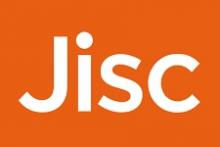UKRI's open access policy, a year on

Caren Milloy outlines the policy’s impact and the work that made it happen
The launch of the UKRI’s OA policy in April 2022 marked an important waypoint on the journey to open access.
The policy provided a steer for how publicly funded research should be shared, reused, and built upon for the benefit of wider society. For Jisc, it aligned perfectly with our work with the sector to enable open access to UK research and to save the sector time and money.
Positive policy impact
Since the announcement, Jisc has scaled up its activity and is now working with 255 publishers from a broad range of subject areas to negotiate a wide selection of open access publishing routes and to confirm funders’ compliance.
The priority has been to ensure society publishers, smaller publishers and university presses are putting in place routes that enable UKRI-funded researchers to publish open access. We want to remove administrative or cost barriers to them, their funders or institutions. We work with these publishers to help them understand which model will work best for them, then help them implement it to ensure their compliance is visible to authors via our Sherpa platform.
As a result of the arrangements put in place by Jisc and publishers, more than 95% of journals that UKRI-funded authors publish in are policy compliant and eligible for OA funding from UKRI across all disciplines
Since 2022, we have reduced the gap in compliance between subject areas – especially in the humanities, which now have similar levels of compliance as STEM subjects. In April 2022, the difference between the subjects with the highest and lowest proportions of compliant and eligible, or green compliant, journals was 11%: it is now 7%.[i]
With most journals now offering compliant and eligible routes to open access, our focus is turning to monographs.
The next challenges in OA
From 1 January 2024, long-form publications are included in the UKRI policy for the first time. This means that monographs, edited collections, and book chapters will need to be open access within 12 months of publication.
This presents an opportunity for the sector to build its support for diverse and innovative ways of sharing long-form research. We have prioritised community-funded agreements and membership models such as Open Book Publishers. We have negotiated various agreements using the free-to-read, free-to-publish ‘diamond’ publishing model such as the initiative for early career researchers, OpenUp, and Opening the Future.
These diamond models act as a much-needed alternative to book processing charges (BPCs). UK institutions increasingly want to support cultural diversity and inclusivity in academic book publishing, known as bibliodiversity.
They also want to control and constrain costs and broaden participation in open scholarship. It was estimated in a 2017 report that the cost to make 75% of books submitted to the Research Excellence Framework under the BPC model would be £19.2m per year. This option is described by the report’s authors as ‘not viable’ for library budgets to support.
These new models of open publishing, as well as initiatives such as Sustainability Coalition for Open Science Services (SCOSS) and Directory of Open Access Books (DOAB), will allow a broader range of research areas, languages, and formats to be published openly and provide a more equitable research ecosystem.
Evaluating the impact of TAs
Jisc, with other consortia and institutions, developed transitional agreements (TAs) to constrain costs and accelerate open access publishing. Our first TA launched early in 2016. In January this year, cOAlition S, an international consortium of research funding organisations, announced that it will no longer support transformative arrangements after the end of 2024.
Jisc is undertaking a review of its transitional agreements, overseen by its strategic groups. The review will evaluate the performance and effectiveness of TAs against the sector’s requirements and within the global context of open research. It will provide an evidence base to inform sector-led discussions on the future of research distribution.
Supporting trusted and open research
We support our members in their journey towards open and trusted research. We can advance open research practices through our negotiations and support efficient research management through our services. Our work will always be led by the priorities of our members and driven by collective action.
To understand more about how Jisc supports open access with sector-wide negotiations, associated guidance and infrastructure, visit the open research pages, and read the research and innovation strategy.
Caren Milloy is director of licensing at Jisc
[i] (Source: Article-level data from Dimensions; Crossref API; KB+; Sherpa Romeo; Journal Checker Tool API).









